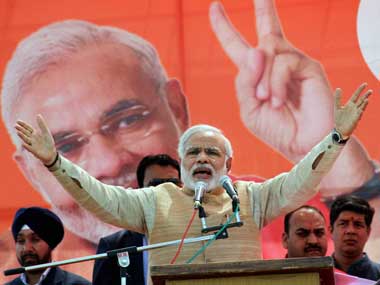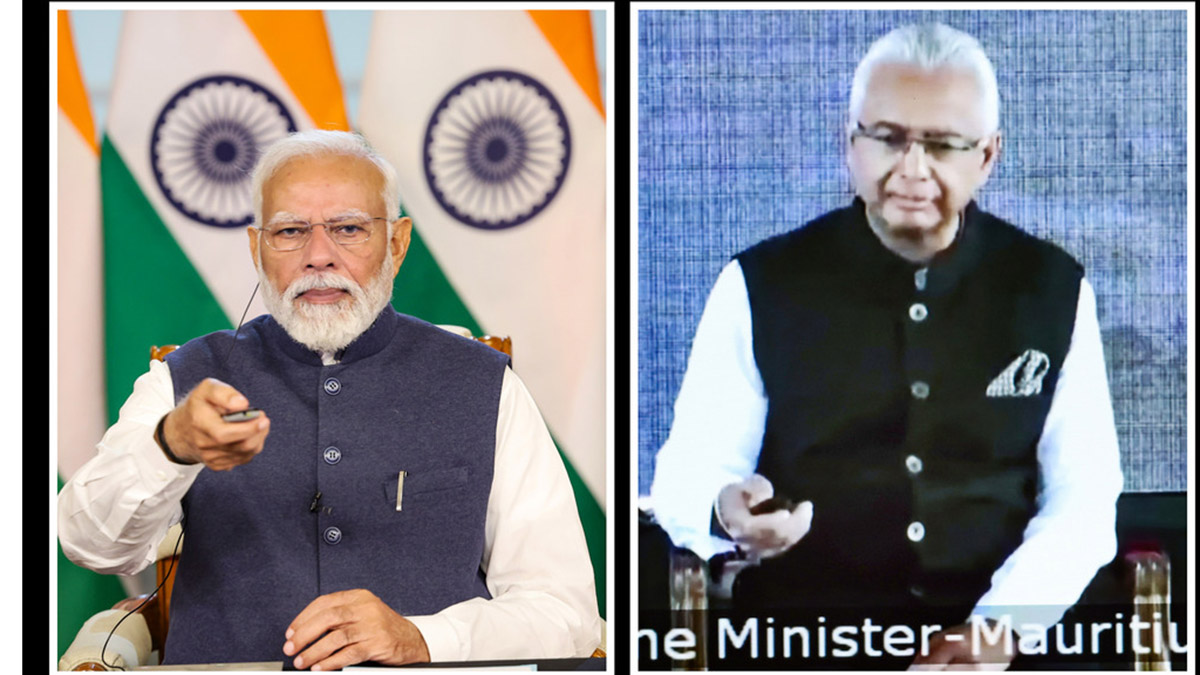Anti-rape laws, Nirbhaya protests, sexual violence in India: These are just some phrases that we’ve been hearing constantly since the December 16 gangrape. For once, women’s rights is an issue that perhaps India’s leaders can no longer ignore.
Maybe that’s why Rahul Gandhi kept on talking about women’s empowerment in all election rallies. That’s also why a Mulayam Singh or Abu Azmi face so much media and social media criticism when they claim rape is a galti and that rape victims should be hanged.
In this context, it is but natural to ask what BJP’s PM candidate Narendra Modi ascent to power will mean for Indian women. In an opinion piece titled Misreading Modi, Amana Fontanella-Khan, argues in Foreign Policy magazine that Modi at the helm will be a disaster for women.
Fontanella-Khan argues in the piece that while Modi might be thundering against rape in his campaigns, his own government’s record doesn’t do much to boost his claims.
She points out that Modi has made rape an issue of governance, which seems to be working for him. She writes, “Many women seem to view India’s current election as a referendum on governmental incompetence and corruption, which has stymied efforts to crack down on sexual assaults.. But there are other parts of Modi’s record that he would prefer women – who make up 49 percent of India’s 814 million eligible voters – to forget: A social conservative aligned with the Hindutva movement, a radical brand of political Hinduism, Modi is hardly an advocate for women’s rights.”
She then goes on to point out how Modi’s own government failed to stop rapes during the 2002 riots, and states, that “Modi’s perceived unwillingness to aggressively prosecute the rapists in the years after the violence unsettled many Gujaratis.”
Fontanella-Khan then goes on to contrast Modi with Rahul, writing, he is “a secularist who hails from a family of imposing matriarchs like former Prime Minister Indira Gandhi, is viewed as being sympathetic to women’s issues but lacking the leadership skills to bring about change."
The comparison with Rahul is one of the more problematic aspects of Khan’s arguments. First, just because Indira Gandhi was PM, let’s not forget that the 1975 emergency under her virtually destroyed Indian democracy. Or the fact that in 1984 the Congress-led government under Rahul’s father Rajiv did nothing to control anti-Sikh riots when there were mass rapes and murders aplenty. Justice remains denied to those women till this day.
And while Rahul has talked much about empowering women, the UPA-II doesn’t have a very strong record on the matter either. When the anti-rape protests were going on in Delhi, the Home Minister refused to meet the students and even drew an analogy with Maoists saying, “If Maoists wanted to talk to me, I won’t go.”
When students protested against Narendra Modi’s visit to Delhi University’s Sri Ram College of Commerce, the women in this group faced rape threats from pro-Modi supporters with the police doing nothing to protect them.
One protestor told The Hindu at the time , “The women were attacked by some who seemed to belong to the ABVP [Akhil Bharatiya Vidyarthi Parishad> and the police, who were supporting each other. The police were apparently particularly obnoxious, whistling at and groping the female students and beating them and the boys up sadistically with lathis in addition to water cannons.”
She also spoke about how the group threatened them with Gujarat-like consequences, chanting, “Jo Gujarat mein hua, vaise tujh me ghusa doonga” while brandishing a stick. All of this under a Congress government both in Delhi and in the Centre, and in the name of Modi.
When it comes to violence against women, none of the parties offer cause for optimism.
What Khan is right to point out though that Modi’s rise is certainly worrying given his future government’s close ties with the Hindutva worldview whose ‘ideal India woman’ is submissive, sticks to ’traditions’ and doesn’t question patriarchy. And let’s not forget that Modi’s much-touted 5 Ts includes “Tradition” – which doesn’t bode well for his view of the role of women.
It was also Modi who told the Wall Street Journal that malnutrition was high in Gujarat due to the ‘beauty conscious’ middle class girls. “The middle class is more beauty-conscious than health-conscious-that is a challenge. If a mother tells her daughter to have milk, they’ll have a fight-she’ll tell her mother, ‘I won’t drink milk. I’ll get fat,’” he had said.
Incidentally the answer was in response to being asked about the fact that “about half of Gujarati children under five were stunted, or too short for their age, as of 2006, according to the latest available figures from the Indian government.” Surely, no woman can be enthused about a prime minister who chooses to blame beauty-conscious girls for skewing the abysmal data on nutrition.
As Urvashi Butalia told AFP, “The BJP has never been particularly known for its progressive attitudes toward women, and there’s no reason to believe a Modi government would be good news for women."
Fontanella-Khan concludes,”[A> Modi win would likely embolden Hindutva organizations nationally, which have been kept in check by the ruling secular Congress party. This would not bode well for women’s rights, which has to do with more than just safe streets."
This is perhaps more pertinent point that needs focus. Fringe groups such as Sri Ram Sene, which was responsible for the 2009 Mangalore pub attack on women, have done quite well thanks to RSS and BJP support. In fact, it was only popular outrage that caused BJP to withdraw the induction of Sri Ram Sene’s chief Pramod Muthalik into the party.
Feminist groups aren’t entirely wrong to fear that such groups could see increased patronage under Modi’s reign. While Modi has never openly supported moral policing, it is easy to see him turning a blind eye to such policing by a Hindutva fringe emboldened by the presence of their man in the gaddi. More worryingly, no one is asking him to promise that he won’t.
In the many interviews that he’s given during this elections, there have been innumerable questions about riots and Muslims, but nary one about his party’s patriarchal views of women. And that should worry us most of all.


)




)
)
)
)
)
)
)
)